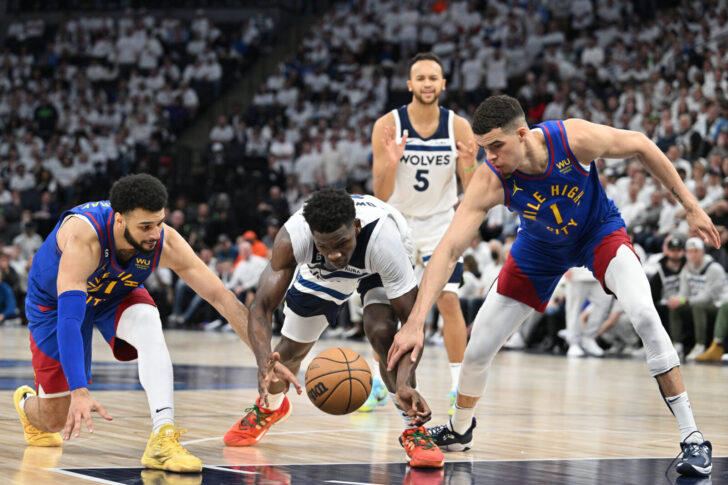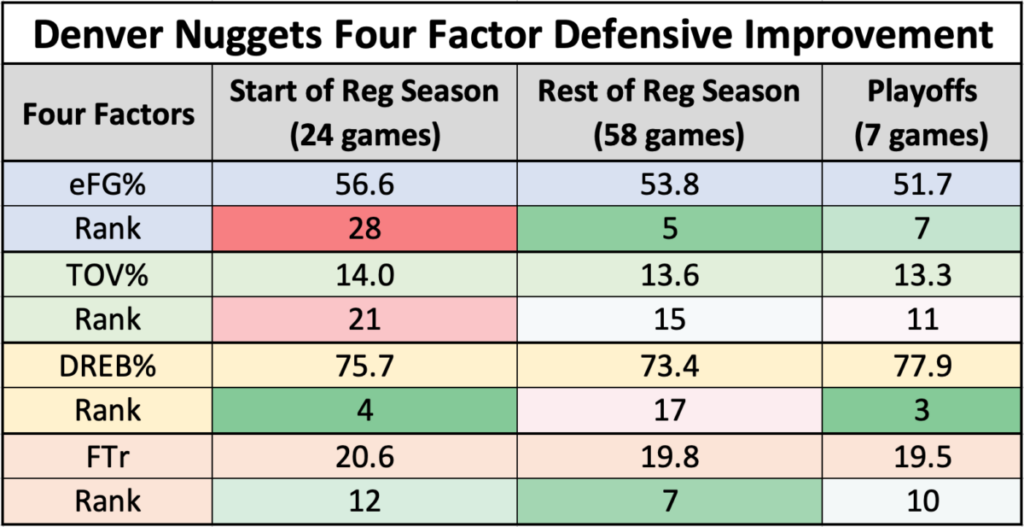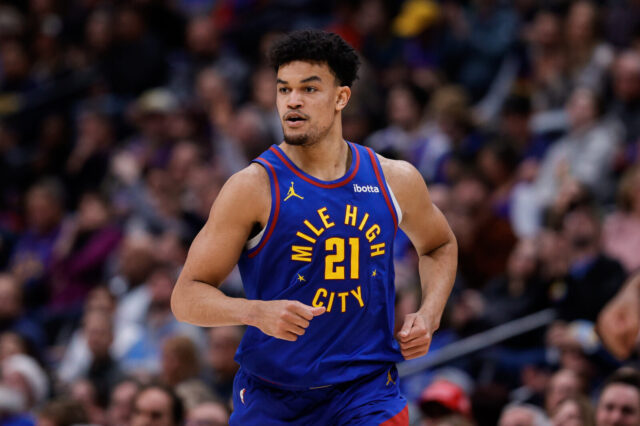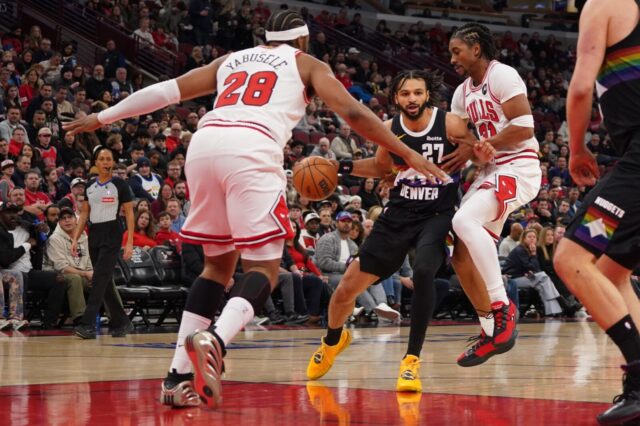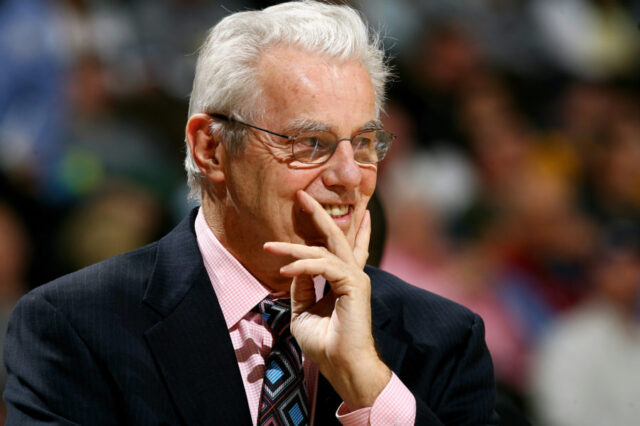It seems so long ago that the Denver Nuggets were one of the lowest rated defenses in the 2022-23 season.
From the beginning of the regular season to December 6th, the Nuggets maintained the 27th ranked defense in the NBA, allowing 115.9 points per 100 possessions per Cleaning the Glass. At that point, the only teams with a worse defense than Denver were the Detroit Pistons, Houston Rockets, and San Antonio Spurs. This was during the first 24 games of the season, during which the Nuggets maintained a 14-10 record primarily due to their offensive talent. Those aforementioned teams ended up with the three worst records in the NBA. The Nuggets ended up leading the Western Conference in wins.
There was much consternation from the coaching staff during this period though, specifically Michael Malone, who could not believe that Denver’s defense could be so bad with as much talent as they had.
“That’s kind of been our issue this year,” Malone shared on December 6th after a home loss to the Dallas Mavericks, “We’ve had moments. We’ve had quarters, halves, we’ve had some games. It just hasn’t been consistent enough to string enough stops together.”
Here’s a snippet from my takeaways on Denver’s defense following that December 6th loss:
The Nuggets know what the problem is. It’s relatively easy to identify. The urgency and intensity simply hasn’t been present from night to night on the less glamorous end. It’s difficult to play 82 regular season games of stellar defense and still be physically prepared for the playoffs. For the Nuggets though, they’d probably settle for “consistently solid” right about now.
If the Nuggets are ever going to win a championship, they will lock in on the defensive end. The coaches know it. The players know it. The NBA world at large certainly knows it. The only two questions are when Denver will up the intensity level on that end and if they can sustain it against elite teams. The Mavericks punished them for sloppy closeouts tonight and hit 17 three-pointers, including the game-winner. This is a great example of what Denver’s defense often looks like when they try against a good team: good enough to make them work for it but not good enough to succeed.
It’s time for the Nuggets to fix that.
Everybody involved knew the defense had to get better if the Nuggets were to be serious about their contention hopes, and from that moment on, the Nuggets finally got serious. For the final 58 games of the regular season, the Nuggets maintained the fourth ranked offense and seventh ranked defense, according to Cleaning the Glass. There were moments when they struggled with one end of the floor or the other, but by and large, the Nuggets had a top five offense all season and a top ten defense for two-thirds of it.
What’s interesting though is that Denver’s defensive numbers improved while the rest of the NBA regressed. Denver allowed 114.0 points per 100 possessions over the final two-thirds of the season, certainly an improvement but not an elite number. What mostly happened around the league was scoring going through the roof. The average offense scored 116.0 points per 100 possessions during that latter period, compared to just 113.0 points per 100 possessions while the Nuggets were playing their worst. Denver’s defensive improvements were mostly disguised by offenses across the league catching fire, and it went mostly under the radar that the Nuggets had figured some things out from December onward.
Still, the Nuggets saw notable improvement in many defensive categories.
Denver’s improvement during the latter two-thirds of the regular season reflects strongly on how they’ve performed in the playoffs so far. There’s an overall level of precision and attention to detail that’s surfaced of late, and that has certainly helped the Nuggets win games. Most importantly is Denver’s ability to contest shots, reducing the eFG% of teams down to regular levels with more disruptive play.
Even Denver’s defensive rebounding, which took a dive during the latter portion of the regular season, became elite again once the playoffs rolled around. The Nuggets appear to have tightened up their coverages, improved their focus throughout possessions, and are now making the full-on effort plays that were absent at the beginning of the year. They’re finishing possessions now, capitalizing on their own efforts and turning defense into offense at a high clip.
Beyond simply playing better though, the Nuggets have tightened up their rotation with their most consistent defensive players and a reaping the rewards. The starting lineup of Jamal Murray, Kentavious Caldwell-Pope, Michael Porter Jr., Aaron Gordon, and Nikola Jokić was already a solid defensive group. During the regular season, they maintained a 112.6 defensive rating on Cleaning the Glass, which ranked in the 56th percentile among all lineups. That lineup has fallen to 115.9 points per 100 possessions allowed in the playoffs, which was a somewhat unsurprising regression.
What’s helped the starters most is the staggered bench lineups featuring Bruce Brown, Christian Braun, and Jeff Green. When those three share the court in the playoffs, the Nuggets have allowed an absurd 100.8 points per 100 possessions, which ranks in the 98th percentile among all playoff lineups. It’s only 129 possessions, but the Nuggets have been able to add one or two of Murray, Porter, or Jokić to those combinations throughout games without any defensive issues. The Nuggets are getting the offensive boost without a reduction in defense, and it’s allowed the Nuggets to be judicious with how they deploy their role players.
Take out Jeff Green, and the combination of Bruce Brown and Christian Braun has locked up opponents to the tune of a 96.7 defensive rating, ranking in the 100th percentile of all playoff lineups. That duo has been extremely dynamic and versatile in their perimeter defense, allowing the Nuggets to match up with the likes of Anthony Edwards, Devin Booker, and Kevin Durant without significant issue.
It isn’t just those guys that deserve credit though. Everybody does, most notably Caldwell-Pope and Gordon. Those two often assume matchups with the most dynamic offensive players on the opposing team. Their ability to soak up those possessions at at least a competent level has freed up Jokić, Murray, and Porter to be the best versions of themselves offensively. Caldwell-Pope and Gordon were always going to take on the brunt of those challenges. For them to do so while remaining impactful offensively has allowed Denver to be the best version of itself at exactly the right time. Denver’s stars still have to fill in where needed, but their individual responsibilities and burdens are so greatly lessened by the plethora of defensive wing talent the Nuggets suddenly have this year.
Teams will always attack Jokić defensively, and there are times when Jokić doesn’t do his job within a defensive coverage. Of course, Jokić has improved in his range of different defensive coverages that he can play, and his natural gifts as a rebounder, protector of passing lanes, and post defender have helped the Nuggets in different situations throughout the playoffs. Like many other centers, Jokić can be compromised by a team that attempts a high number of threes with elite shotmakers, but the Nuggets have yet to face those types of players in volume this postseason. Whether that changes or not remains to be seen. Jokić has done his job so far regardless.
Time will tell whether the Nuggets can maintain their elite playoff defense. It’s been great to see them rise to the occasion against an elite offensive team in Phoenix during the first two games. Game 3 is of course tonight, and perhaps the Suns figure some things out at home against a Nuggets defense that can sometimes struggle in a road environment.
If the Nuggets are able to keep up the defensive effort though, they will add it to what’s already seen as an elite offense with Jokić at the helm. The Nuggets can almost always get a great shot at any time because of their offensive formula, and it looks like their defensive efforts haven’t compromised that formula just yet.
So, can Denver keep defending at an elite level? Why not?
